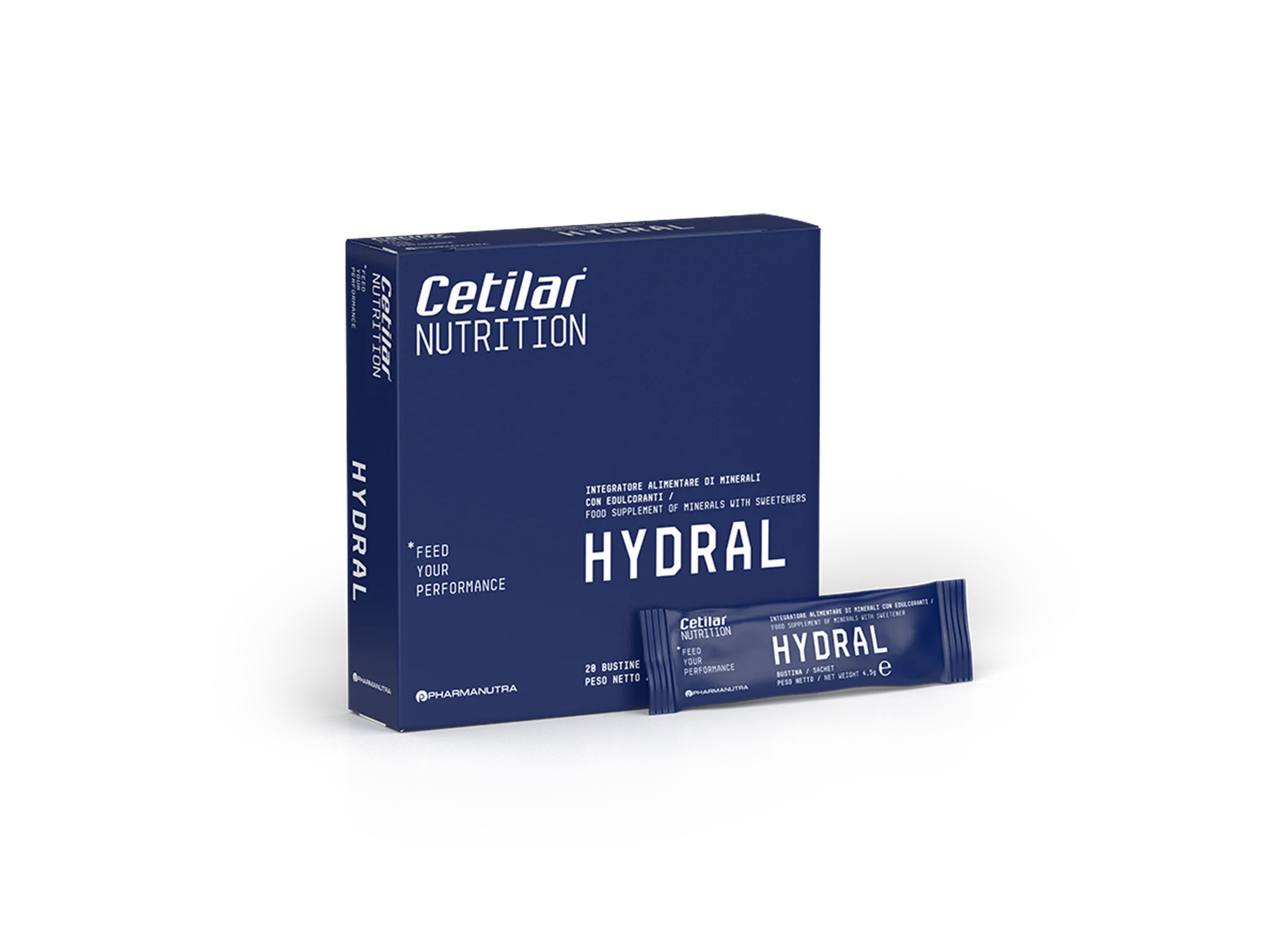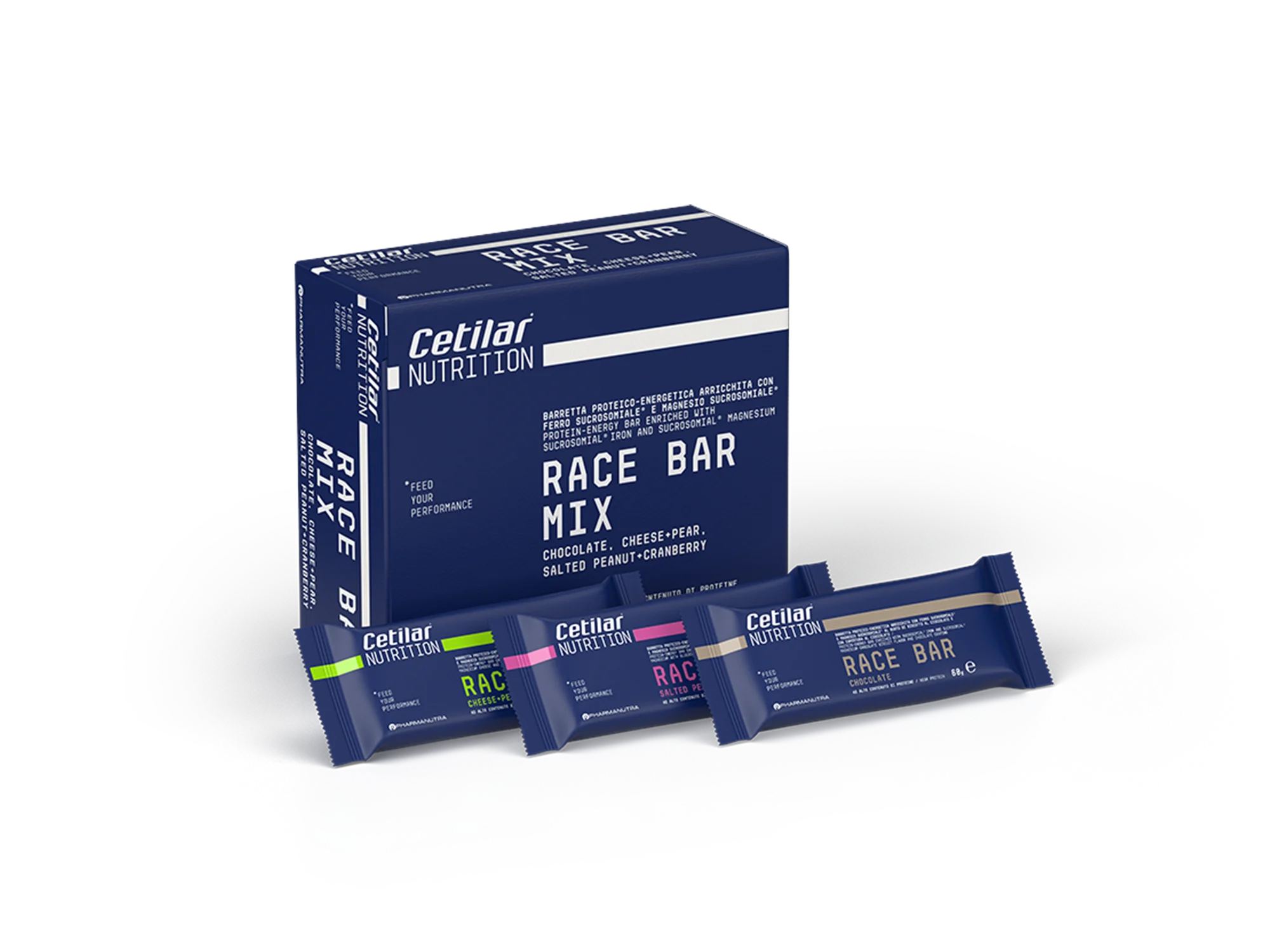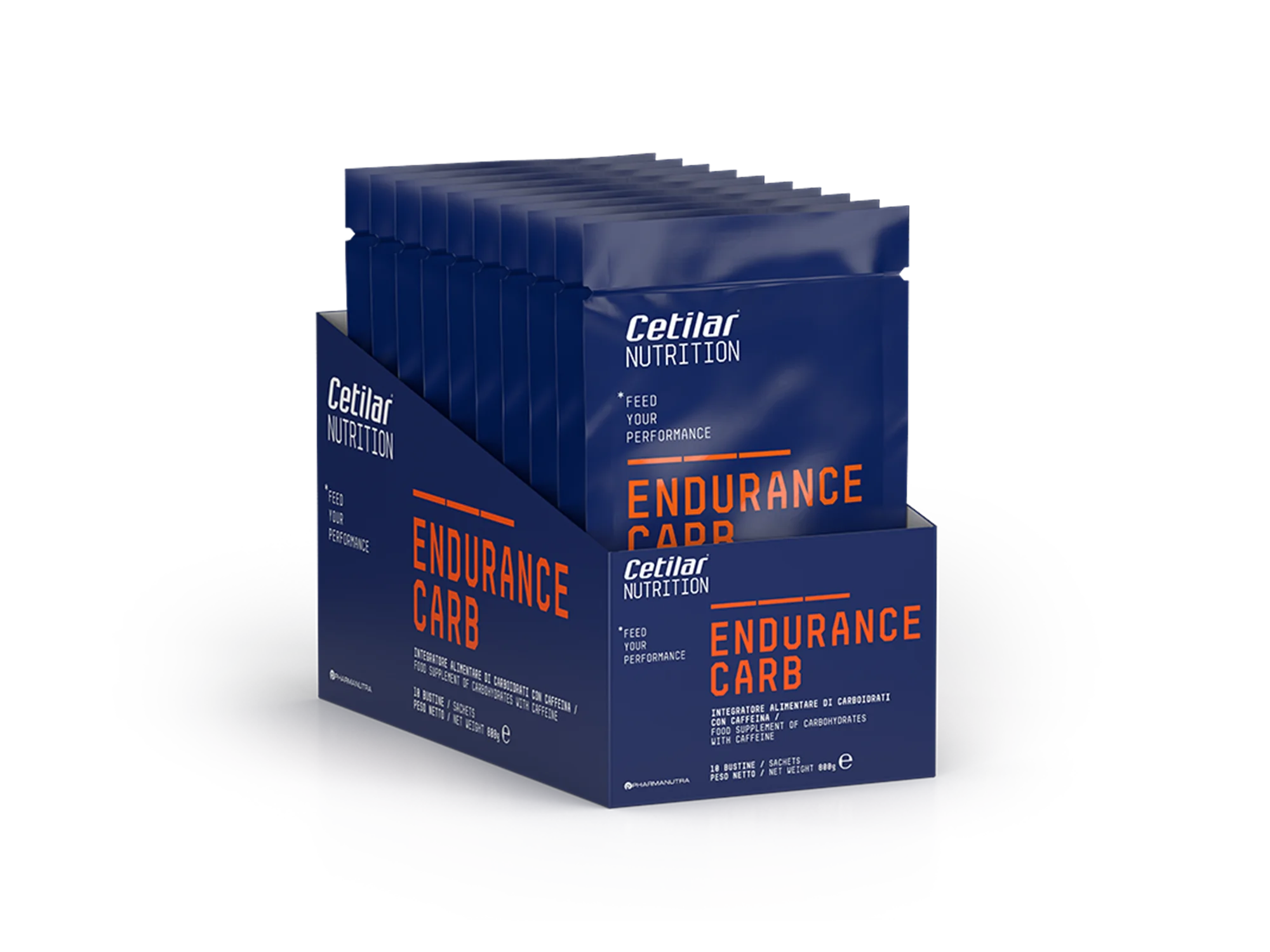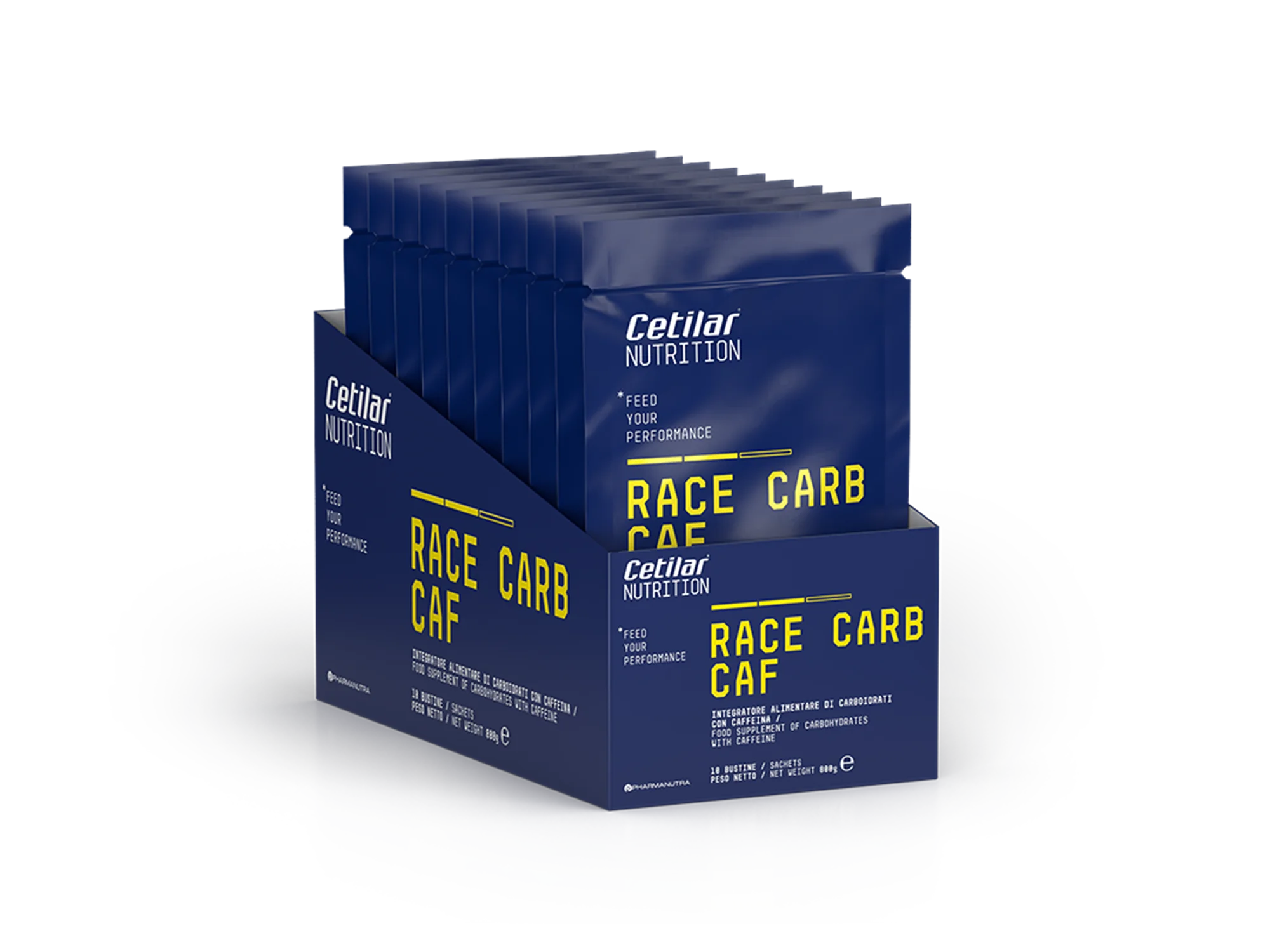The importance of hydration during exercise
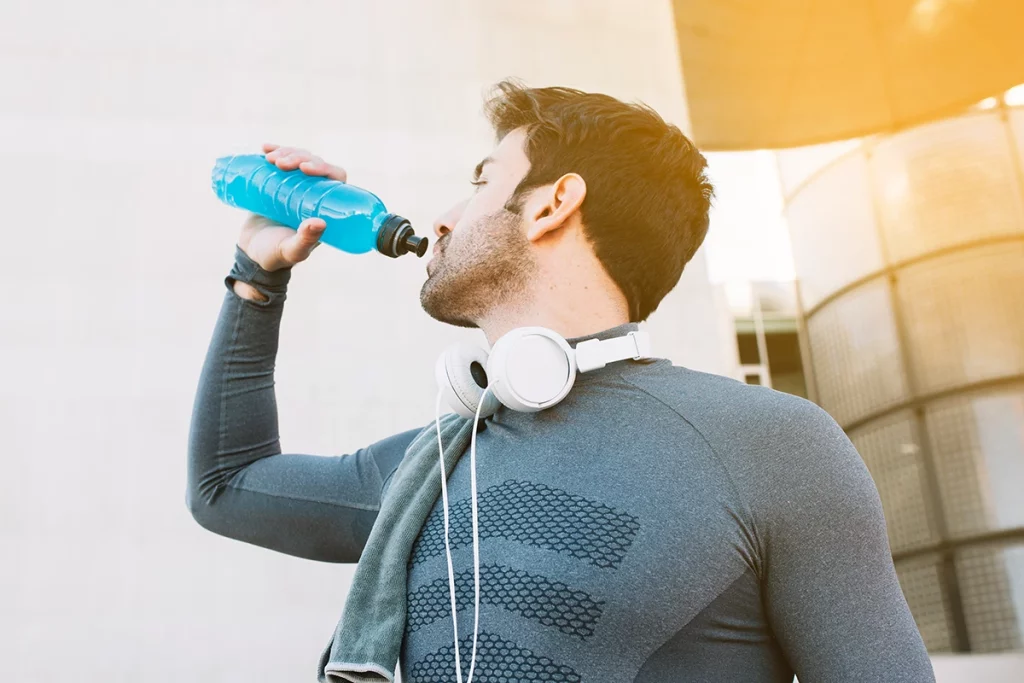
Water is the primary component of the human body and thus, the total body water content is closely regulated. Our body maintains water homeostasis mainly through the regulation of the urine concentration mediated by the action of antidiuretic hormone (ADH) and by adjusting fluid intake by thirst response-mechanism. Water intake occurs from consumption of liquids and food and by production of metabolic water (through cellular respiration pathway), while water elimination occurs from respiratory, gastrointestinal, renal, and sweat losses. Euhydration represents the state of being in water balance, whereas hypohydration is the state of being in negative water balance.
Maintenance of fluid homeostasis is essential for athletic performance and thermoregulation. During exercise, body temperature increases due to muscle contraction and energy production and sweat evaporation is the main mechanism that allow heat loss. Sweat is an example of hypo-osmotic fluid, composed by water and electrolyte, mainly sodium. The rise in sweat rate when exercising leads to a negative fluid balance if not balanced through fluid ingestion. When an athlete become dehydrated, all physiological functions are likely to be compromised: respiratory system, cardiovascular system, muscles, brain and eventually psychological functions. Dehydration may decrease total blood volume and blood pressure and therefore less blood and oxygen may be available to the muscle, to the brain and to the skin to support thermoregulation. The rise in whole body temperature increases skeletal muscle glycogenolysis and anaerobic metabolism and seems to affect the brain by reducing mental drive and motivation for motor performance. If water losses exceed > 2% of total body weight, both physical and psychological performances are considerably affected: maximal aerobic power, strength, and endurance capacity are altered, and fatigue takes over earlier.
Different factors such as individual characteristics, intensity, and type of exercise, training status and environmental conditions influence sweat losses during physical activity. Due to all these variables, strategies should be tailored for each athlete by evaluating different parameters. Body weight measurements (before and after a physical effort) and urine specific gravity and osmolarity analyses provide effective tools capable to assess individual hydration status and sweat loss, especially for athletes, due to the extensive and rapid sweat losses.
Despite exercise results in massive sweat losses, individuals should avoid drinking more fluids than the amount needed to replace them, indeed, even though severe dehydration impairs performance and increases the risk of heat illness, also drinking too much can also be harmful or uncomfortable.
Current guidelines from American College of Sport Medicine recommend approximately ~5-7 mL-kg-1 (350-500mL) at least 4 h before the exercise task and approximately ~3-5 mL·kg−1 about 2 h before the event (180 -350 mL). During exercise, the primary focus is to limit the level of dehydration and prevent excessive changes in electrolyte balance. Sports drinks, which contain moderate level of electrolytes, can be helpful in boosting hydration. These beverages might contain approximately ~20-30 meq·L−1 of sodium, ~2-5 meq·L−1 of potassium and ~5-10% of carbohydrate and the requirements of these components may differ depending on the situation. After exercise, the athlete will need to drink about 1.2-1.5 liters of fluid for each kg of weight loss in training or competition to compensate and fully restore fluid losses.
Developing customized solutions is the key to maintaining an adequate water balance and optimizing performance.
Sports Hydration: Cetilar® Nutrition Hydrate Fast
Cetilar® Nutrition Hydrate Fast is a rehydrating stick supplement to be dissolved in water, providing a hypotonic solution (80.8 mOsmol/L) that can be beneficial during moderate or intense exercise when fluid loss from sweating is substantial.
Cetilar® Nutrition Hydrate Fast contains Sucrosomal® Magnesium, which helps reduce tiredness and fatigue, supports electrolyte balance, aids normal energy metabolism, and contributes to the proper functioning of the nervous and muscular systems.
Racinais S, Hosokawa Y, Akama T, et al
IOC consensus statement on recommendations and regulations for sport events in the heat
British Journal of Sports Medicine 2023;57:8-25.
Arnaoutis G, Kavouras SA, Angelopoulou A, Skoulariki C, Bismpikou S, Mourtakos S, Sidossis LS. Fluid Balance During Training in Elite Young Athletes of Different Sports. J Strength Cond Res. 2015 Dec;29(12):3447-52. doi: 10.1519/JSC.0000000000000400. PMID: 24513625; PMCID: PMC4515206
American College of Sports Medicine; Sawka MN, Burke LM, Eichner ER, Maughan RJ, Montain SJ, Stachenfeld NS. American College of Sports Medicine position stand. Exercise and fluid replacement. Med Sci Sports Exerc. 2007 Feb;39(2):377-90. doi: 10.1249/mss.0b013e31802ca597. PMID: 17277604
McCubbin AJ, Allanson BA, Caldwell Odgers JN, Cort MM, Costa RJS, Cox GR, Crawshay ST, Desbrow B, Freney EG, Gaskell SK, Hughes D, Irwin C, Jay O, Lalor BJ, Ross MLR, Shaw G, Périard JD, Burke LM. Sports Dietitians Australia Position Statement: Nutrition for Exercise in Hot Environments. Int J Sport Nutr Exerc Metab. 2020 Jan 1;30(1):83-98. doi: 10.1123/ijsnem.2019-0300. PMID: 31891914.
Cheuvront SN, Kenefick RW, Montain SJ, Sawka MN. Mechanisms of aerobic performance impairment with heat stress and dehydration. J Appl Physiol (1985). 2010 Dec;109(6):1989-95. doi: 10.1152/japplphysiol.00367.2010. Epub 2010 Aug 5. PMID: 20689090.
Nybo L, Rasmussen P, Sawka MN. Performance in the heat-physiological factors of importance for hyperthermia-induced fatigue. Compr Physiol. 2014 Apr;4(2):657-89. doi: 10.1002/cphy.c130012. PMID: 24715563.
Périard JD, Eijsvogels TMH, Daanen HAM. Exercise under heat stress: thermoregulation, hydration, performance implications, and mitigation strategies. Physiol Rev. 2021 Oct 1;101(4):1873-1979. doi: 10.1152/physrev.00038.2020. Epub 2021 Apr 8. PMID: 33829868.
